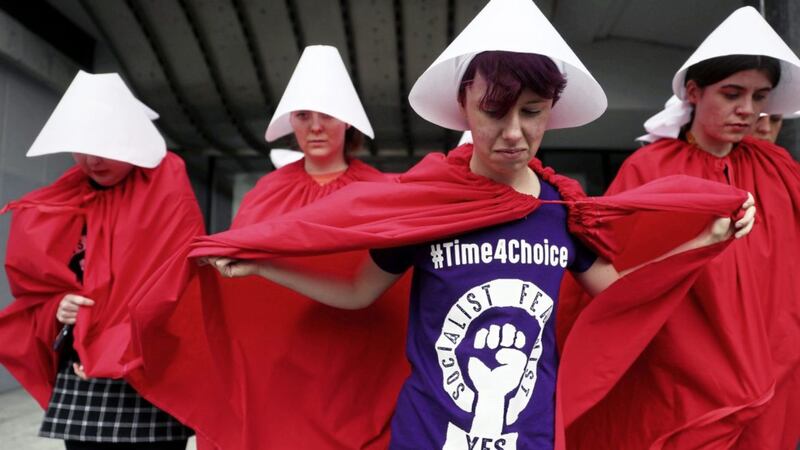THE Republic's electorate will go to the polls next month to cast their votes in a referendum which could end the state’s ban on abortion.
On May 25 voters will be asked if they want to repeal the eighth amendment to the Irish Constitution, which recognises the equal right to life of mother and unborn baby, thereby banning terminations. Abortion in the south is illegal unless it occurs as the result of a medical intervention performed to save the life of the woman.
The current campaign to see the eighth amendment repealed was most certainly spurred on by tragic cases such as the death of dentist Savita Halappanavar in 2012.
Mrs Halappanavar died in University Hospital Galway due to sepsis, e-coli and miscarriage while 17 weeks pregnant.
The miscarriage took seven days to unfold, and early in the process, when it was clear that the miscarriage was inevitable, Mrs Halappanavar requested an abortion. At that time the medical team had not diagnosed her with a blood infection, and her request was denied because the medical team did not judge that her life was in danger.
But at her inquest, a leading obstetrician said that it was highly likely Mrs Halappanavar would still be alive had she been given a termination when she and her husband had requested one.
The heartbreaking case led to a lot of soul searching and much of the 'Repeal the 8th' campaign nods back to that tragedy as a reason for overhauling the Republic’s abortion laws.
As as reporter, I’ve spent a lot of time over the past few weeks covering the very sensitive and hugely emotive issue of abortion. I’ve been to anti-abortion campaign public meetings where images were displayed of a baby at 12 weeks gestation that looked to me – having had four babies myself – more like a newborn child.
I’ve seen the posters telling people that if they want to kill a baby, they should vote for repeal. I’ve seen women call other women 'hysterical' because they are pro-life. I’ve seen women call other women murderers because they are pro-choice.
I’ve listened to radio debates that have descended into shouting matches and I’ve talked to people on both sides of the argument, who both make very valid points.
I have never had an abortion myself. Thankfully I have never found myself in a position to need one. I know women who have had them, though. A girl I know got pregnant when she was in her late teens to a man she hardly knew and decided it wasn’t the right time for her to be a mother and went to England for an abortion.
Another woman I know had to have an abortion because of a fatal foetal abnormality that would ensure her child would not survive outside the womb and because her own life was at risk.
Every single case is heartbreaking. And unless any of us have been there, we know nothing, absolutely nothing, about how that situation feels and have no right to judge.
I also know a woman who resisted pressure to have her baby aborted, even though every doctor she spoke to give her little girl less than two per cent chance of survival due to a fatal condition. She chose not to and her little girl is now nearly two years old. I know another woman who was offered a termination after her baby was diagnosed with a fatal condition in utero who decided to carry on with the pregnancy; her baby lived for just one day.
Every woman’s story is different and every person’s viewpoint is just as diverse.
There are many valid arguments on both sides and I will not weigh in on one or the other. I think what people decide on this matter is their own personal business. But what this vote has thrown up is hugely emotional, sometimes disturbing and often untrue ‘facts’ to help sway voters one way or the other.
On my Facebook feed last week someone posted a video of a supposed 12-week-old aborted foetus, still moving in the abortionist’s hands. Social media is awash with pictures of dead babies. Horrifying for most, but particularly those who have lost children themselves, and traumatising for women who have had abortions.
Here in Northern Ireland we are no strangers to controversy and heated debate, but the debates raging on abortion are the most vicious and vitriolic I’ve seen in a long time and it will get worse as the date nears.
On this issue, I find that people feel very passionately about their beliefs and how they will vote. In the history of time, shouting and insulting has never changed minds.
People need to block out the noise, educate themselves with the facts and make up their own minds on what could be a monumental moment in Ireland’s history.








